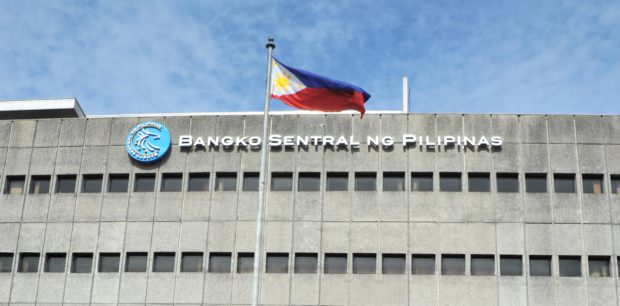The Bangko Sentral ng Pilipinas (BSP) intends to keep key rates low even as it expressed concern that the ripple effects of the conflict between Russia and Ukraine would reach the Philippines’ financial system.
The Monetary Board is up for a policy meeting on March 24, when it will review the latest global and local developments and decide whether to keep the BSP’s key policy rate —its overnight borrowing rate —at a record low of 2 percent.
“We expect the ongoing conflict to continue to exert upward pressures on key international commodity prices, particularly oil and wheat,” the BSP said.
“Meanwhile, the ongoing conflict could also cloud prospects for global trade and investment, as uncertainty spills over into financial markets through higher volatility and weaker market confidence,” the regulator added.
The BSP supports the national government’s moves to keep the momentum for economic growth toward prepandemic levels, particularly subsidies that could help alleviate the impact of rising crude oil prices on the transportation and agriculture sectors.
Also, the BSP is in favor of further relaxation of restrictions that would allow greater economic activities.
“The BSP remains focused on preserving monetary policy support as sustaining the economic recovery remains a priority,” it said.
“At the same time, the BSP stands ready to respond to potential second-round effects arising from elevated inflation pressures that can disanchor inflation expectations, in keeping with our price and financial stability mandates,” it added.
According to Maybank, Southeast Asia is vulnerable to developments in the European Union—which may fall into recession under a prolonged Russia-Ukraine war—even if two-way flows of goods and capital between the region including the Philippines and Russia are miniscule.
In a research note, Maybank said the Association of Southeast Asian Nations (Asean) would not be spared from the global fallout, despite the small direct trade linkage with Russia and Ukraine.
Russia alone accounted for just 0.4 percent of Asean’s total trade in 2021 and less than 0.1 percent of total Asean-bound foreign direct investment (FDI).
“Investment ties between Russia and Asean are miniscule, with Russia accounting for an insignificant 0.04 percent of total FDI inflows or $314 million into Asean between 2016 and 2020,” the bank said.
“But a broader European downturn will impact Asean exports and FDI,” it added.
